Bulgaria is a highly underrated gem in Europe that is often overlooked by tourists. Luckily for digital nomads, we seem to know better and Sofia is increasingly becoming a hub for remote workers. Choosing Bulgaria as your base means access to this country’s unspoiled nature, historic towns with little tourists, and amazing Bulgarian food you may not know you love yet. Here’s a complete guide on traveling as a digital nomad in Bulgaria!

Introduction
The land that is now occupied by Bulgaria has had a varied and rich history. From being part of the Roman Empire, to under rule by the Ottomans, up to the communist Soviet era. All these aspects of Bulgaria’s diverse history and culture can be seen still today. Its story is still being told in the ancient Roman ruins and remaining Turkish baths throughout the country. One may be surprised to arrive and find unspoiled natural wonders including mountains, glacial lakes, rugged coastlines and beautiful beaches. But the best part of traveling as a digital nomad in Bulgaria is the sense of authenticity. Here’s a place yet to see mass tourism, and has remained mostly un-commercialized (for now).
Practical Info

Visa
Bulgaria is not part of the Shengen EU. This means that your Shengen Tourist Visa will not apply here. This is good news, since you can stay in Bulgaria without using up your limited 90 days Shengen tourist visa. It’s not uncommon for digital nomads to head to Bulgaria or other Non-Shengen European countries to wait for their Shengen Visa to reset.
Americans can stay in Bulgaria for up to 90 days without the need for a visa. To check your passport’s specific visa requirements for entering Bulgaria, click here.
Wifi
Bulgaria has exceptionally fast wifi speeds, and you’ll be more than happy with the internet quality while here. According to Speed Test, in March of 2021 Bulgaria’s average download speed was 96 mbps on mobile and 80 on fixed broad band.
The wifi speed does get considerably slower in the more remote area, and certain hostel wifi speeds I encountered were suboptimal. To counter this issue, I’d recommend shooting out an email to any hostel, hotel or airbnb before arriving to get a screen shot of their wifi speeds. Try to avoid working when traveling into the wilderness or to isolated areas, and you’ll be fine.

SIM Card
If you’ll want to ensure access to the internet from anywhere you go, opt to get a prepaid SIM card with data. You have 3 options for service providers: A1, Telenor and Vivacom. These are all quite similar in price, costing about 15 – 20 Bulgarian Lev (about $10 USD) for a monthly prepaid plan.
The best provider is A1, with the best coverage in the country. You can find A1 shops, as well as the others, all in Sofia where you’ll likely arrive.
For a map of the A1 shops in Sofia, click here.
Weather
The weather in Bulgaria can be quite harsh. There are certainly nicer times of year to visit than others, but don’t come here expecting great weather overall. It’s not really known as that type of destination.
Winter

Winters in Bulgaria are bleak, and may catch you off guard by its sheer coldness. A visit in December will have you bracing the snow everyday in the capital of Sofia. The day time temperatures in Sofia always hover around or slightly below freezing, and it’s common for it to snow the entire winter season.
In the mountains, it can get as low as -17 C, so it’s no wonder that many hiking areas and national parks are not accessed in this season. The trekking company that does tours of the Rila Mountains even closes by the end of November, because it’s too snowy and cold to hike up. Furthermore, you’ll also be plagued by the winter smog at some point, which is a result of heating with coal.
Spring
Don’t expect a warm and comfortable spring here either. While it starts to warm up from March, the day time temperature only starts to reach double digits consistently around May. If you are staying in Sofia, this is often a very wet time of year as well so not the best for outdoor activities. However, May is usually a good month to visit Bulgaria overall, when the temperature is quite warm but not yet stifling from summer heat.
Summer
Summers in the cities of Bulgaria are hot, and can easily feel uncomfortable. Day time temperatures normally reach 32 C (90 F) but it’s also normal to exceed 38 C degrees (100 F). Visiting in summer is ideal for those who will spend more time in the mountains hiking, where the temperature is much better. Or for those who will hit the beach, along the Black Sea. This is actually a popular summer vacation spot for British travelers, so expect crowds, but nice beaches nonetheless.
Autumn

Autumn is likely the best season to visit Bulgaria. The day time temperatures are still warm averaging around 15 C in the cities. This is also the driest time of year, so it’s best for hiking and outdoor activities overall. Bear in mind, autumns are cut short in Bulgaria, and by the end of October it will become much colder very fast.
Cost of Living
The cost of living in Bulgaria can be quite reasonable. It’s not as cheap as Poland, but considerably cheaper than any Western Europe counterparts. If you are staying in Sofia, expect to spend $1500 a month. This includes a lifestyle of staying in a monthly airbnb, traveling on weekends, going out for drinks and dinner a few times a week, and cooking at home some nights.
Accommodation
If you wish to rent an entire apartment in the center of Sofia, it can cost anywhere between $500 – $700 USD on Airbnb. If you are traveling alone and prefer a shared place, or want to cut costs, a room in a shared flat can be around $450 USD.
When you are traveling around, a budget option is to stay in a hostel dorm which costs about $15 USD a night.
Food

A week’s worth of groceries in Sofia can cost about $40 USD, or $160 USD a month. The cheapest supermarket is LIDL, closely followed by Billa which are both widely available in the city.
What you’ll be surprised to learn is that Bulgarian food is actually amazing. You’ll definitely want to eat out a few nights a week to try the local cuisine. Sofia itself is home to some incredible sushi places (go to The Sushi Bar, thank me later). If you buy groceries and eat out or go drinking a few times a week, you’ll probably spend $400 – $500 USD a month on food.
Transport
I’d budget around $200 a month on transportation if you plan to stay in Sofia only. However, a more realistic budget is about $300 – $400 if you plan to do weekly trips around the country.
Getting around Sofia usually means using the metro or taking Uber. The metro has recently been renovated and is now a very clean and somewhat modern addition to Sofia’s infrastructure. The metro fare is also quite cheap, with a one way ticket costing 1.60 BGN (about $1 USD).

The only downside is that unlike other cities in Europe, the metro stations sometimes feel far apart. You’ll sometimes have to walk a bit to reach one. Uber fares can be reasonably priced, with rides within the city center costing about $3 – $4 for a short ride. These will come in handy when you are too cold to walk to the metro station.
If you want to travel around Bulgaria, you’ll be pleased to find that public transport travel is fairly cheap, but also not very fast, modern or reliable. However, it gets the job done and a one way train ticket from Sofia to another city can cost easily below $10 USD.
Where to Stay
When planning your stay as a digital nomad in Bulgaria I didn’t find many places that I’d consider favorable as a digital nomad home base. Below are the only two cities I’d recommend choosing as your digital nomad home based on convenience and a quality lifestyle.
Sofia

Sofia is the capital city of Bulgaria and the obvious choice as your digital nomad home base while here. You have a bustling city, thriving nightlife, and access to all the conveniences you may need from city living.
It’s also fairly easy to meet people while in Sofia because the locals here have the most English-speaking capabilities in Bulgaria. As the capital city, the costs in Sofia are slightly higher than other parts of the country. A sushi dinner here can easily cost just as much as it would back in the States at around $40 per meal.
Sofia is also well connected by train and public transport to get to basically any other point of Interest throughout the country. This makes it an ideal base for those who want to travel around Bulgaria while here.
Plovdiv

The second best option as your digital nomad home base in Bulgaria is the cultural city of Plovdiv. It even held the title as the cultural center of Europe in 2019, as a testament to the cultural richness of the city. While also a large and lively city, it’s also home to a number of historically significant points of interest. Some of which even date back to Roman times! A stay in Plovdiv will combine the best of modern living with old world charm.
It’s also more centrally located within the country making it an ideal starting point for traveling around the country. If you choose Plovdiv as your home base you can fly directly here by landing in Plovdiv Airport.
Things to do in Bulgaria
Belogradchik

Belogradchik is an intriguing historic fortress, built into gravity-defying rock formations. It isn’t known by most tourists but it is easily one of the most unique places in Bulgaria. A visit here will surely take you to the medieval castle fortress, which is unlike any other you’ve probably seen.
While here you’ll also have the opportunity to hike and explore the area to take in this martian like landscape. Furthermore this area is also home to a handful of interesting caves. If you are interested in visiting these underground wonders it’s best to come by car so you can fully explore this area.
Veliko Tarnovo

Veliko Tarnovo is easily the most beautiful town in Bulgaria. A visit here will have you feeling like you’ve been transported back in time. The main part of the historic town is located on an arc where the river turns, right along the riverbanks and surrounded by lush greenery.
The large medieval castle dominates the skyline and close by is the charming historic town. The town has maintained its historic appearance, with cobbled streets and traditional style buildings. In the Old Town, you’ll find numerous charming little cottages built in traditional Ottoman styles.
Plovdiv

Even if you don’t choose Plovdiv as your home base you absolutely must pay a visit to this city. This city has much to offer and you can easily spend a few days exploring the historic sites, parks and cafes.
Some must-visit tourist attractions are the Ancient Theater of Philippopolis, which dates back to Roman times, as well as the Garden of Tsar Simeon, and the Plovdiv Old Town. The old town features well preserved, colorful homes that retained a very traditional Bulgarian style. Also, be sure to head to Nebe Tepe, an ancient hill with the ruins of an old fortress. This hill also offers the best view of the city, and is awesome during sunset.
Vitosha Mountain

If you are staying in Sofia as your home base, Mount Vitosha is going to become your go-to playground for outdoor activities. Honestly, I didn’t meet a single local from Sofia that didn’t completely gush over their beloved mountain whenever It was mentioned. In a way I get it; not all cities have their very own mountain so nearby and accessible.
If you are visiting during the summer you’ll have many opportunities to go for hikes on Mount Vitosha as the weather will be ideal during this season. If you are visiting during the winter like I did, you’ll be treated to a real Winter Wonderland, since the mountain will be completely covered in snow from as early as November. The best part of Mount Vitosha is that it’s literally within a half an hour from the city center.
Pro Tip: the sunsets up here are magical.
Rila Monastery

Rila Monastery may be the most famous landmark in Bulgaria. It was founded in the 10th century By Saint John of Rila, the nearby town. Since its founding, Rila Monastery has become both a hub of spirituality and a huge influence on religious art. It is a UNESCO world heritage site and is visited by a large number of tourists each year.
A visit here will allow you to tour this beautifully preserved historic monastery which is covered in elaborate religious artwork. You’ll find religious motifs and frescoes painted all over the monastery which are easily considered masterpieces in religious art.
Rila Mountains
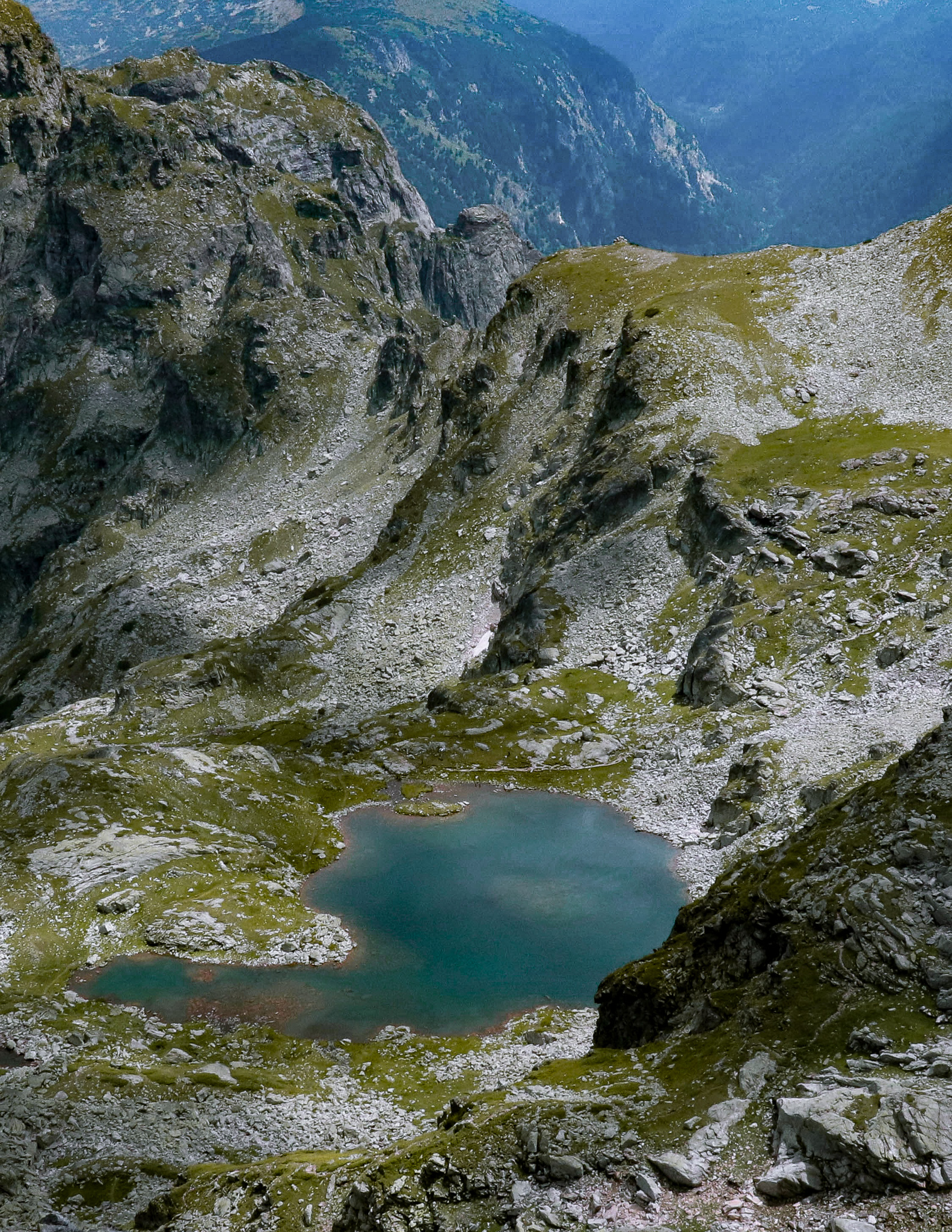
Easily paired as a single trip with Rila Monastery is a visit to Rila National Park. This National Park is likely to be the most beautiful natural wonder in Bulgaria. Its landscape is characterized by numerous mountain peaks, over 200 glacial lakes, and even hot springs.
It’s a popular hiking spot for both tourists and locals. The best time to come here is during the summer when the weather is at its best and hiking conditions are favorable. Unfortunately, it usually closes for the winter season because the snow is too thick to be accessible for hikers.
The most popular trekking trail is along the Seven Rila Lakes, which takes you through arguably the best scenery in the entire region.
Varna

Varna is the third biggest city in Bulgaria, And well worth a visit for its natural wonders as well as historical sites. It’s location right along the Black Sea make it an ideal place to explore the beaches by day, and city life by night. Truly, Varna may be most famous for its thermal hot spring bathhouses, some of which can be really luxurious to experience. You can spend days relaxing in the upscale bathhouses, soaking in the mineral rich thermal springs.
Varna is also home to beautiful architecture, and does not have as much of that Post-Soviet era look that some of Bulgaria has. You can enjoy wonderful nightlife and gastronomy here as well. Honestly, it wouldn’t make a bad digital nomad base either, if you don’t mind being located in such a far off corner of the country.
Life for Digital Nomads in Bulgaria

The Positives
The Food
I never expected to love Bulgarian food. Honestly, I had no reference to what Bulgarian food was like to begin with, since it isn’t a cuisine widely found in other countries. The food is influenced by The Ottoman Empire, but still European. The result is hearty dishes, with fresh veggies and mild spices. While here, definitely try the moussaka, stuffed peppers, shopska salad, meatballs and the soups!

Social Life
Before coming to Bulgaria, you may read online that Bulgarians aren’t friendly. While I wouldn’t come here expecting a greeting from every local you pass, it is very easy to meet people. Use apps such as couchsurfing or meet up to connect with locals or other travelers while here. I met some of the loveliest people during my month in Sofia.
The Cost
Besides the cost of Airbnb and sushi dinners in Sofia, everything else involved with your cost of living in is quite cheap. Sadly, Bulgaria is known currently as the poorest country in Europe, but this means that the price for local products are quite low right now. Although you may spend more on partying, eating out and traveling, you technically could get by on $1000 USD a month in Sofia if you wanted to.
The Nightlife

Bulgarians are known as heavy drinkers, and I found this to only be partly true. With all stereotypes, it’s highly exaggerated. However, I will say that the national drink is rakia, which often exceeds 60% alcohol, which tells you a lot about this place. In Sofia, you’ll find a party every evening if you want, from dive bars, to cocktail lounges to full on clubs. If you want to party, this is a good place to be.
The Negatives
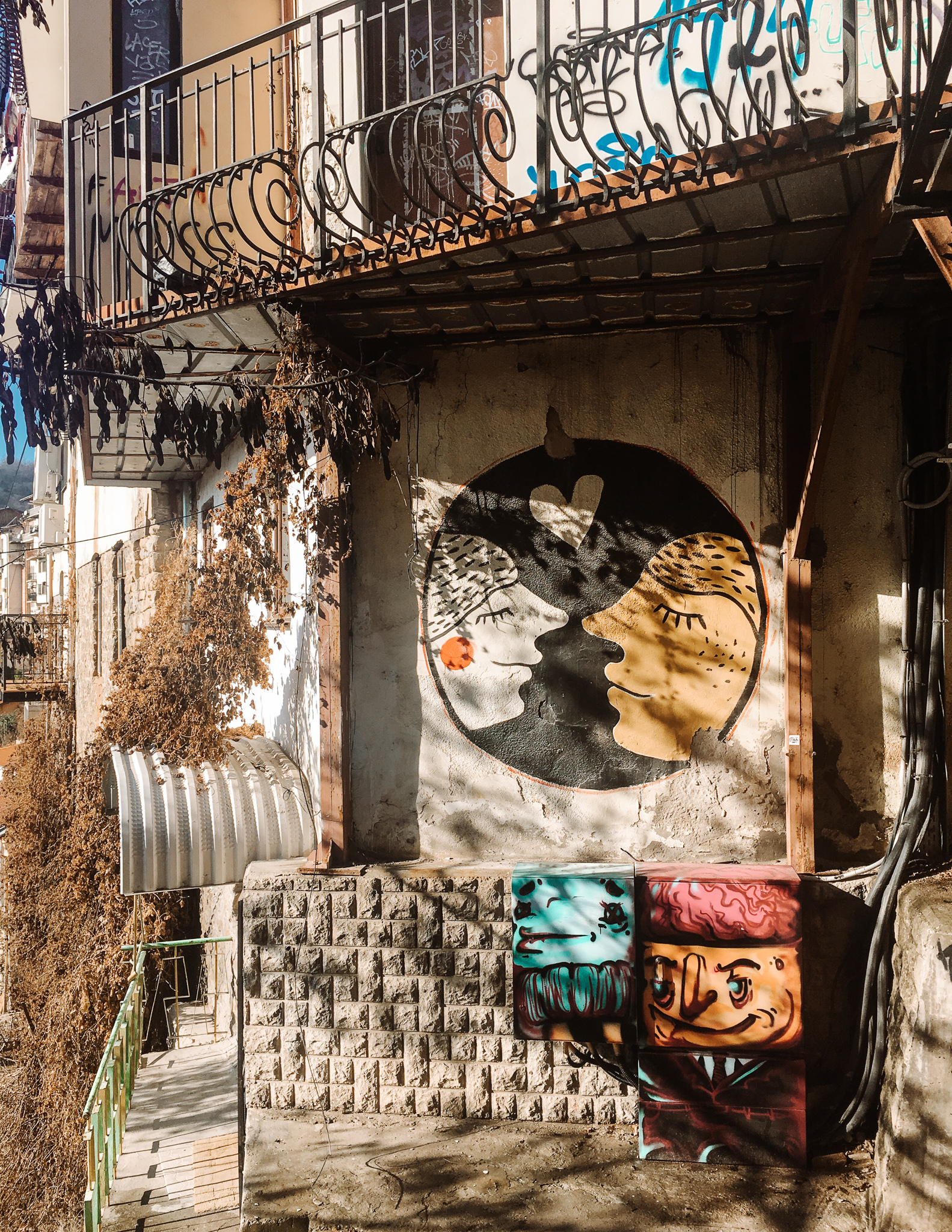
The Weather
The weather in Bulgaria is extreme, and the window of time for nice weather is far too small. Unless you visit in May, or in September through October, the weather will likely piss you off at some point. I spent the coldest winter of my life in Bulgaria, and that was just from November to December. I can only imagine how it is during the peak of winter.
The Pollution
Bulgaria often competes with Poland as the most polluted European country. While I never experienced the infamous smog in Poland, I did in Bulgaria. The worst city for this is definitely Sofia, where each winter the skies are completely covered in grey smog. The issue does alleviate in more remote areas of the country, but it still is a huge problem for residents in the city.
Less “Interesting” Sites

Some travelers feel that Bulgaria is boring, yet others completely gush about how it’s such an underrated destination. If you compare it to Italy or France, it has far less famous or must see tourist attractions. Moreover, it also has less visually stunning towns and architecture, with many cities still maintaining the Soviet era appearance in certain areas.
If you are into offbeat travel and love nature and history, Bulgaria is an amazing destination. If you’re after visually stunning or world famous landmarks, it doesn’t have as many as neighboring countries like Romania or Turkey.
Safety in Bulgaria
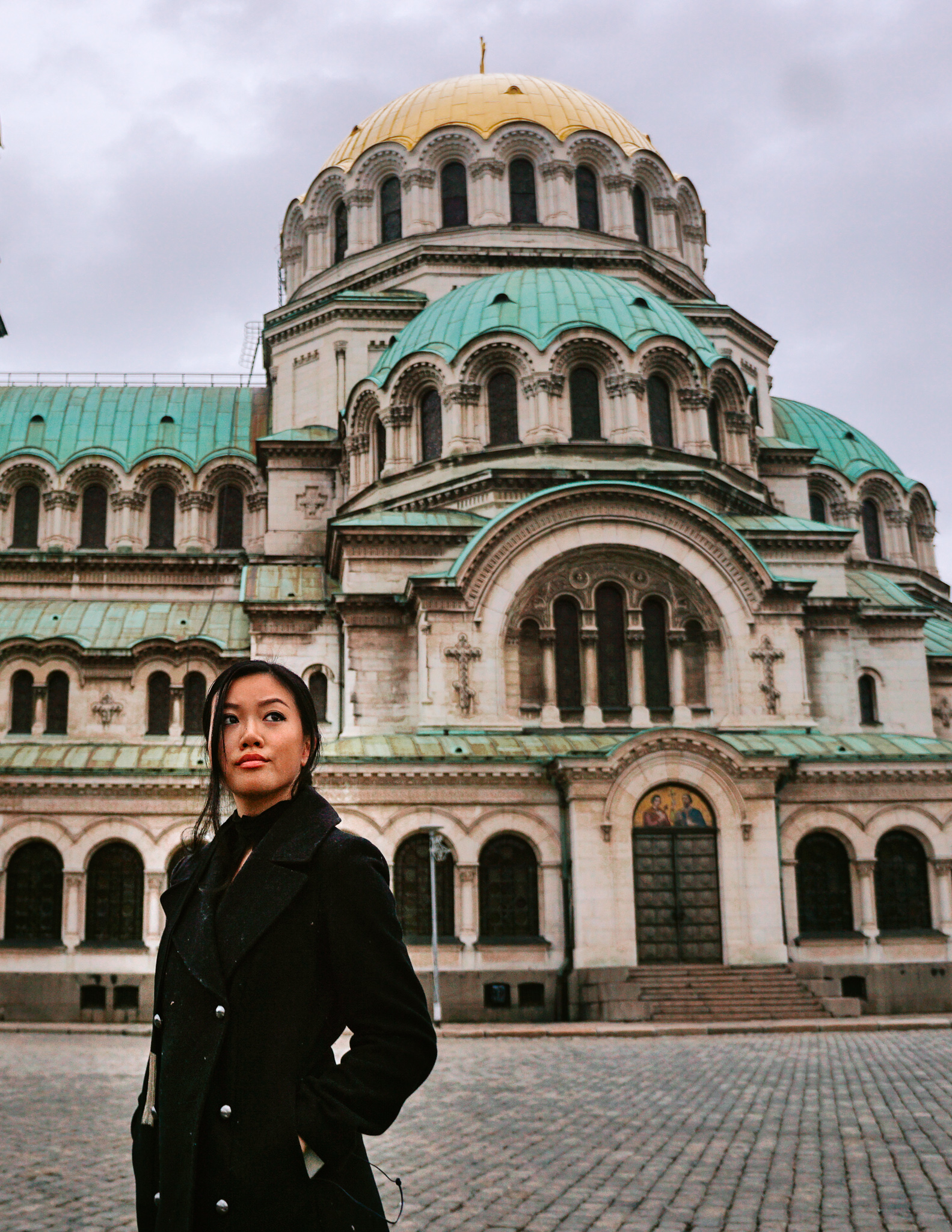
Bulgaria is a generally safe country, which ranks as the 28th safest country in 2020 in the Global Peace Index. It’s considered a green country, meaning it’s relatively safe from threats such as murder, other violent crimes and terrorism.
However, that’s not to say you won’t encounter some shady characters. In the larger cities, I’d still highly recommend against walking alone at night no matter what. Anyone you encounter out late at night is likely to be drunk, and there is nothing positive to be gained from that situation.
Bulgaria is also currently considered the poorest country in the European Union, with unemployment sometimes reaching an insanely high level. As a result, pickpocketing and muggings are not unheard of, especially in tourist hotspots like Sunny Beach, along the Black Sea. Stay reasonably vigilant and don’t make yourself a target, and you’ll be fine.
Female Digital Nomads in Bulgaria

I personally did not experience anything that stood out as an imminent threat as a solo female digital nomad in Bulgaria. However, my friends did experience something that shed light on the fact that things can become unsafe.
Two of my female friends were walking together to their hostel after a night out at around 2 AM. I went home earlier and faced no issues, but at this late hour there were more drunks wandering the streets. Eventually, they were stalked and groped by a drunk man.
What this indicates, is to never let your guard all the way down, no matter what. I felt perfectly safe in Sofia and Bulgaria in general, but the same rules apply here as anywhere else. Don’t walk around late at night, especially alone. If you must travel at night, opt to take an Uber instead.
Final Word
Bulgaria may not be my top pick for destinations in the world, but it certainly makes the list for best digital nomad destinations. From fast wifi, to bustling city life, and unspoiled nature, with other tourists far and few between. There are many things to love about being a digital nomad in Bulgaria. For those who crave the unknown and more offbeat travel experiences, this is a fantastic country to spend time in.
And over to you! How was your experience as a digital nomad in Bulgaria? Let me know below!
 The Philippines for Digital Nomads: A Complete Guide
The Philippines for Digital Nomads: A Complete Guide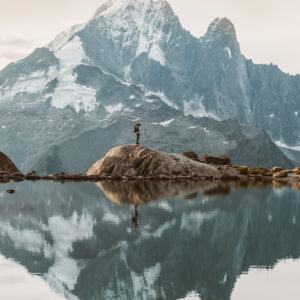 Backpacker vs Digital Nomad Travel Styles
Backpacker vs Digital Nomad Travel Styles A Travel Guide to Ireland for Digital Nomads
A Travel Guide to Ireland for Digital Nomads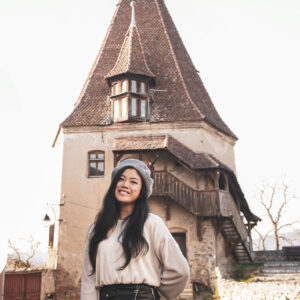 Is Romania a Good Country for Digital Nomads?
Is Romania a Good Country for Digital Nomads?

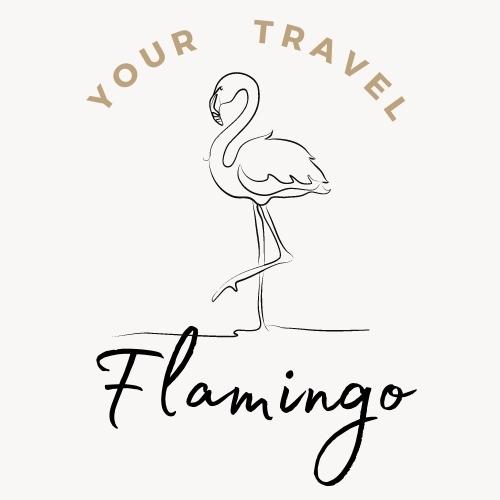
I’ve never been to Bulgaria but your article made me add it to my travel bucket list. Thanks for all the details!
I’ve always thought Bulgaria is an under-rated destination. Of course it’s cold in the winter but I thought that was the best time to explore!
What a great guide, not only to be a digital nomad in Bulgaria but to visit – something I’ve been wanting to do for some time. Loved reading a bit about the local foods and culture, it sounds like an interesting place – maybe a bit quiet at times but I don’t think that’s always a bad thing
Love this post! I really want to try and work out of another country in Europe and Bulgaria looks like a great one to do it from!
Things to add for Bulgaria:
– Bulgaria has the Romani (Gypsys) people completely around the country and especially at every, even minor tourist attractions like Belogradchik. While they (old and young) seem to steal more at night and more specific nowadays like expensive smartphones, you might not get into problems with older stuff, if you travel that way. You can however count on the domestic Bulgarians trying to help you out or taking an eye on you, too. Demographically Gypsies are very young and you might find groups of 15 people at a observation deck, at a cinema or in the nature at a rock.
Some years ago, Romani stole every, meaning for single matresses and things to make music with from of my older caravan in Southern Germany, while I was gone for just 50 minutes, but didn’t take the then expensive flatscreen. Or they went into a good attended local restaurant in a village directly in the Balkans and took a chair, and a garden shed from others was simply used.
– Bulgaria was not only heavily destroyed in the World Wars like Germany, but suffered under Soviet and Serbian/Yugoslav socialism. Especially the border regions are interesting, if you maybe speak Croatian or Hungarian or understands Austria. Because they tried to remain open and interconnected, but went really, really poor because of centralization. I found there far more tough and outspoken people, like around Belogradschik and many areas across the main Balkan mountain chain, where the youth goes abroad to get more income and hopefully bring the money some time back for restauration and scrap some buildings. Also you can see European infrastructure money not wasted. Compared to modern Eastern Germany, which was also Socialist til 1990 and which is historically the least achieving center of Germany, you can see the difference in appriciating real investments and building up again with own work, compared to getting everything more freely from whole Germany, and buying and sometimes building plain shit afterwards.
– Bulgaria is part of Europe, also specifically rough Balkan, also post-Soviet and bordering what is not Europe. People are very friendly and warm up, if you speak a little bit of Bulgarian or South Slavic like Croatian – Serbian isn’t that liked. Or if I speak German and the other person understands it, what is less common among younger people however. The Bulgarian language has also many German words, and also specific ways to describe things like you would in Germany, but nowhere else. So people know, what you mean.
If I speak English, I kind of get a far more reserved answer and it’s far more informal.
Also I want to add:
– Winters are cold, everywhere where it is not summer. Some parts of Bulgaria are near sealevel, some are in the higher mountains. So you can vary easily.
The Balkans are not the Alps, but for my reasons especially nice around winter time. There might be single better places in the Balkans like Kosovo, where you have nobody but untamed winter landscapes. In Bulgaria however, you have a more developed connectibility to other things like the capital of Sofia or fast internet, but still no masses. You can do things more individually, but not lacking the material like snow machines like you would in Kosovo. Or the snow at home.
Interesting perspective. I am from California and I found Bulgaria to be incredibly cold. But I haven’t been to Kosovo, the untamed landscapes sound awesome.